Greek mythology and religion are not just a collection of tales about gods and heroes; they represent a complex belief system that has influenced Western culture for centuries. These myths provide profound insights into the human experience, reflecting the values, fears, and aspirations of ancient Greek society. For those eager to explore this fascinating world, there are numerous best books on Greek mythology and religion that offer rich narratives, scholarly analysis, and engaging retellings. In this article, we will highlight ten must-read books that illuminate the intricate tapestry of Greek myths and their religious significance.
Best Books on Greek Mythology and Religion
Many people see Greek mythology as simply entertaining stories about powerful deities and epic adventures. However, digging deeper reveals how profoundly these myths shaped Greek religion and identity. The narratives were not just fanciful tales but attempts to explain natural phenomena and humankind’s place in the world. Reading works that analyze the theological and social context of the myths grants deeper insight into ancient Greek civilization. In the following overview of highlights, you will discover how key texts have advanced modern understanding of this influential belief system.
« The Iliad and The Odyssey » by Homer – Epic Foundations of Greek Mythology
No exploration of Greek mythology would be complete without Homer’s The Iliad and The Odyssey. These epic poems are foundational texts of Western literature, recounting the Trojan War and the adventures of Odysseus, respectively. Both works focus heavily on the involvement of the Greek gods in human affairs. In The Iliad, the gods take sides in the battle between the Greeks and Trojans, directly intervening at pivotal moments. The Odyssey depicts Odysseus encountering various deities as he seeks to return home after the war.
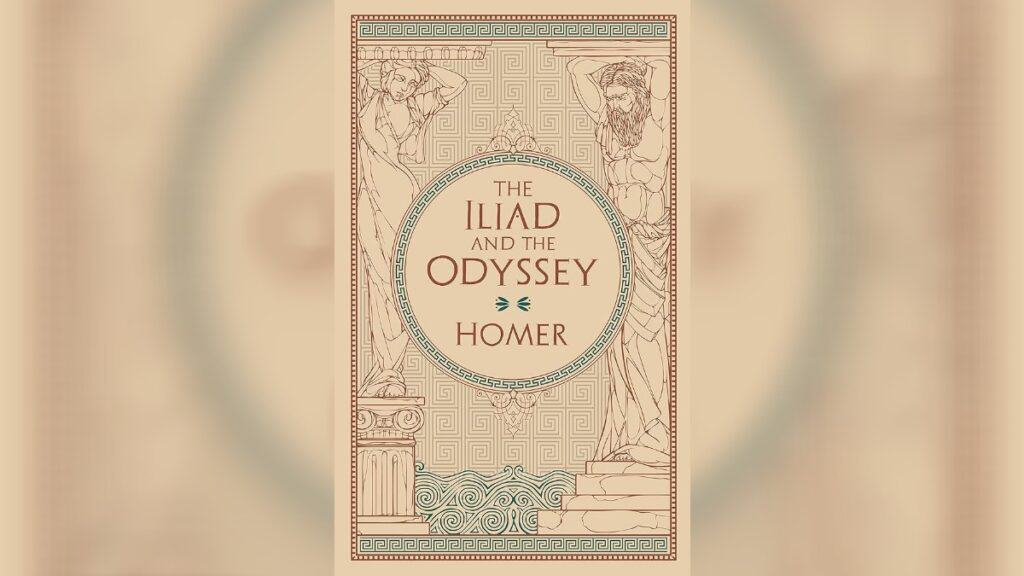
Themes: Honor, fate, the wrath of gods, and the hero’s journey.
Significance: These works not only entertain but also provide insight into the values and beliefs of ancient Greek society. The gods are a constant presence, demonstrating how divinity shaped both individual lives and geopolitics.
Why Read: Both are essential for understanding the larger pantheon of Greek gods, as many deities play crucial roles in the lives of the heroes. Homer’s depiction of the gods established their divine personalities and relationship to humankind.
« Theogony » by Hesiod – The Origins of the Greek Gods
Hesiod’s Theogony is one of the primary sources for Greek creation myths. This poem traces the origins of the cosmos, the birth of gods, and the establishment of Zeus’s rule. It describes the origin of the universe from divine forces like Chaos and details complex family trees showing how later gods like Zeus and Poseidon emerged.
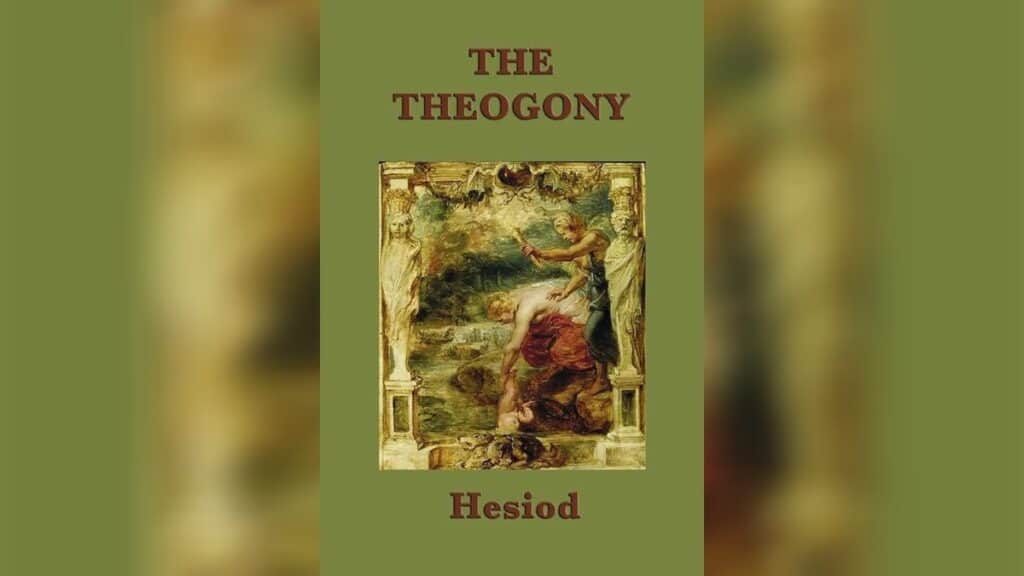
Themes: Cosmogony, divine genealogy, power struggles.
Significance: Theogony offers one of the earliest and most comprehensive accounts of the gods’ lineage, providing a basis for much of Greek mythology. It depicts the Olympian gods supplanting the Titans, establishing a divine order.
Why Read: It serves as a foundational text for understanding the relationships between Greek gods and the structure of their divine hierarchy. Hesiod’s version of events became definitive for later authors.
« Mythology: Timeless Tales of Gods and Heroes » by Edith Hamilton – A Comprehensive Guide to Greek Myths
Edith Hamilton’s Mythology is widely regarded as one of the best introductory books on Greek mythology, offering clear, concise retellings of famous myths. She presents well over one hundred legends, cleanly summarizing complex stories and divine genealogies without overly simplifying their depth or beauty. Hamilton’s approachable writing style makes the myths feel vibrant and engaging for modern readers.
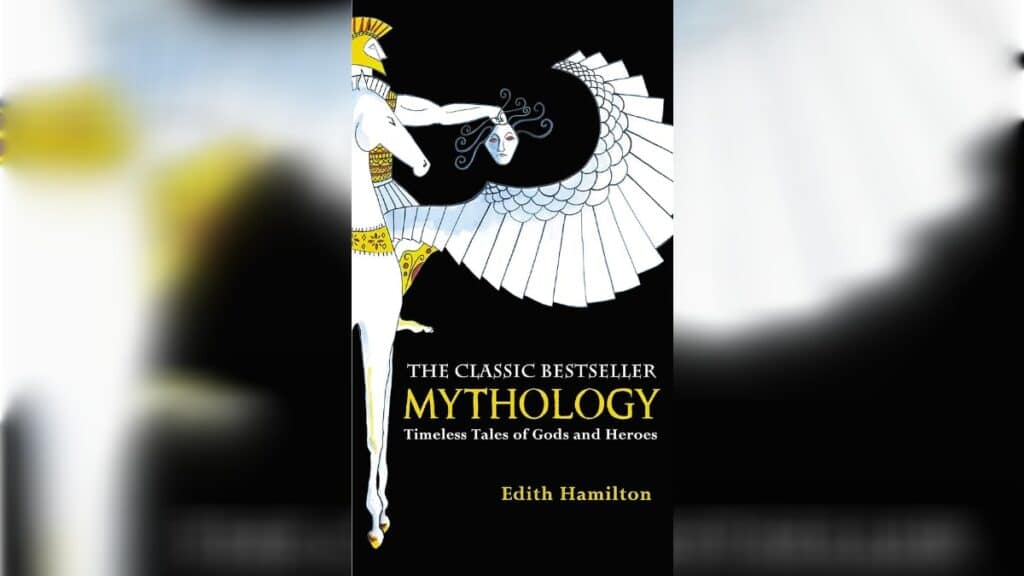
Themes: Love, heroism, revenge, and the interplay between gods and humans.
Significance: Hamilton’s work has become a classic for its readability and its ability to capture the essence of Greek myths without losing the beauty of the original stories. It introduced generations to these foundational tales.
Why Read: Ideal for beginners, this book provides a cohesive and engaging overview of Greek mythology, covering major gods, heroes, and myths. Hamilton’s compelling retellings will spark interest in further study.
- A Review of The Heaven and Earth Grocery Store: James McBride’s Soulful Portrait of Community and Humanity
- Elevate Your Mental Well-being: A 1-Month Glow-Up Guide
- Top Books for Boosting Intelligence and Knowledge: Unlocking Your Intellectual Growth
- Book review : « To Hell with the Hustle » by Jefferson Bethke
« Greek Religion » by Walter Burkert – A Scholarly Insight into Greek Religious Practices
Walter Burkert’s Greek Religion is a scholarly but accessible exploration of ancient Greek religious practices, rituals, and beliefs. He analyzes primary sources to construct a robust picture of how worship was conducted on both the civic and household levels. Burkert examines the relationship between oral tradition and literary accounts to uncover what religious life may have looked like in antiquity.
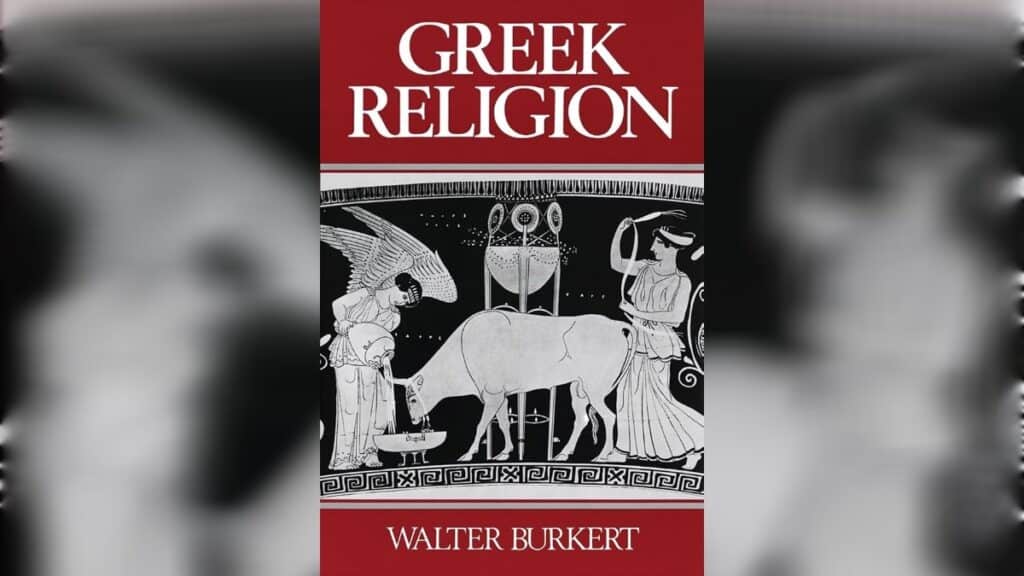
Themes: Worship practices, sacrifices, and the connection between myths and rituals.
Significance: Burkert’s work goes beyond mythology, delving into the religious practices and cultural context that shaped these stories. His research illuminated how Greeks applied their beliefs in their daily lives.
Why Read: For readers interested in the practical side of Greek religion, this book provides a detailed look at how the ancient Greeks engaged with their gods through rituals and ceremonies. Burkert’s extensive research brings history to life.
« The Library of Greek Mythology » by Apollodorus
Apollodorus’ The Library of Greek Mythology is an essential compendium of myths, offering a systematic retelling of Greek stories. Across three books, Apollodorus attempts to reconcile variants of myths that arose from different poetic traditions. He traces the ancestry of gods and heroic figures, describing their feats and mythical beasts they encounter.
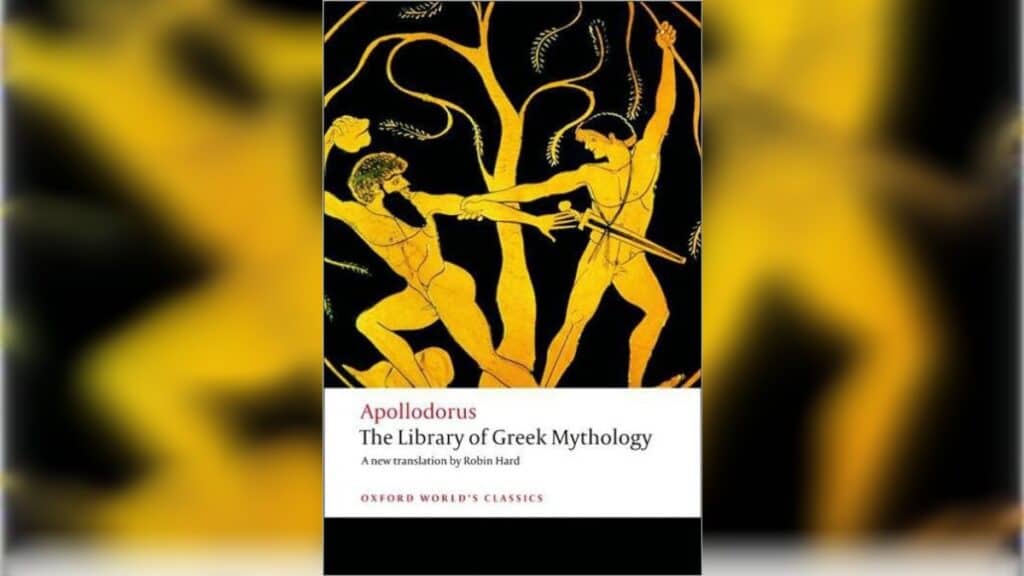
Themes: The exploits of gods and heroes, family lineage, and mythical creatures.
Significance: It organizes the complex web of Greek myths into a cohesive narrative, covering major figures and events. Apollodorus’ effort brought clarity to disparate accounts.
Why Read: A comprehensive and organized resource, ideal for anyone seeking a thorough overview of Greek mythology. Readers can use it as a reference for cross-checking details.
« Gods and Heroes of Ancient Greece » by Gustav Schwab
Gustav Schwab’s Gods and Heroes of Ancient Greece is another excellent collection that brings together the most well-known Greek myths, presented in a straightforward narrative style. Schwab nimbley translates themes of destiny, hubris, and the price of ambition into modern terms with clarity and imagination.
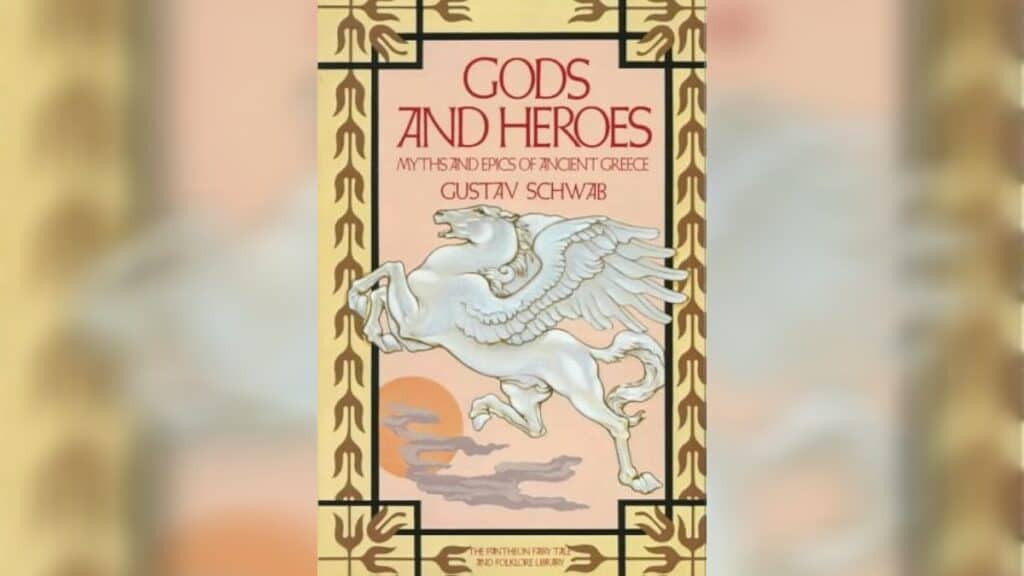
Themes: Adventure, morality, and the role of fate in human life.
Significance: Schwab’s collection has been a go-to resource for understanding Greek mythology since its publication, with a focus on storytelling. It brings the myths to life through artful prose.
Why Read: This book is perfect for readers looking to experience Greek myths in a traditional narrative form, offering a seamless reading experience. Schwab’s adaptations sparked new interest in these eternal tales.
« The Power of Myth » by Joseph Campbell
Though not solely focused on Greek mythology, Joseph Campbell’s The Power of Myth explores universal themes in mythology, many of which are reflected in Greek myths. Through a series of interviews, Campbell discusses how myths from around the world embody analogous stages of a mythological « monomyth » that shapes human experience.
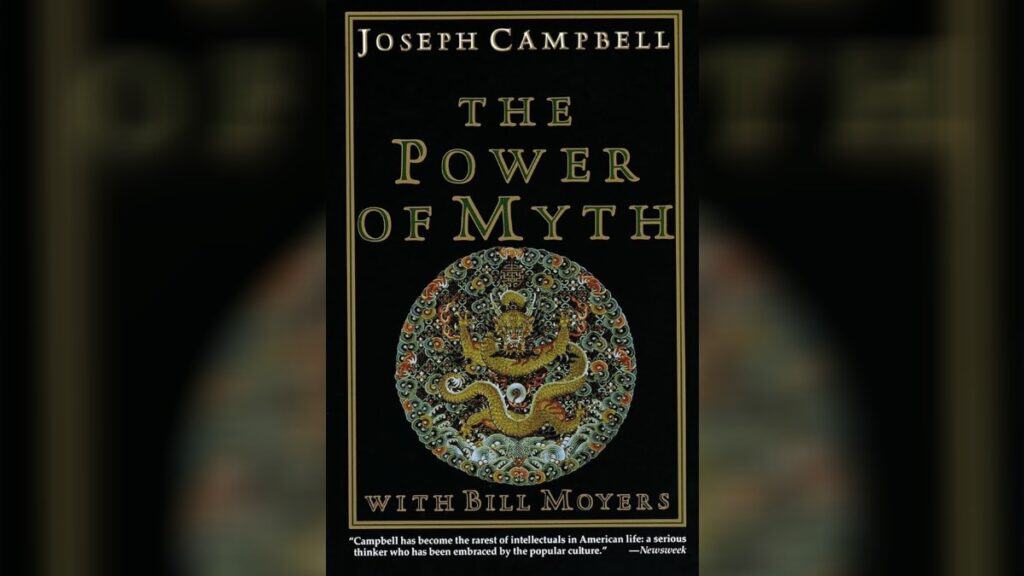
Themes: The hero’s journey, archetypes, and the power of storytelling.
Significance: Campbell’s work provides a broader perspective on mythology, making connections between Greek myths and other world traditions. It helped popularize the idea that myths encode profound insights into life.
Why Read: For those interested in the deeper psychological and cultural meanings behind myths, Campbell’s insights are invaluable. His theories bring fresh appreciation for these ancient tales.
- A Review of The Heaven and Earth Grocery Store: James McBride’s Soulful Portrait of Community and Humanity
- Elevate Your Mental Well-being: A 1-Month Glow-Up Guide
- Top Books for Boosting Intelligence and Knowledge: Unlocking Your Intellectual Growth
- Book review : « To Hell with the Hustle » by Jefferson Bethke
« D’Aulaires’ Book of Greek Myths » by Ingri and Edgar Parin d’Aulaire: Greek Mythology for All Ages
The D’Aulaires’ Book is a beautifully illustrated retelling of Greek myths for young readers, though it appeals to all ages with its engaging storytelling and visuals. Simple yet expressive artwork pairs with descriptions that balance education with entertainment.
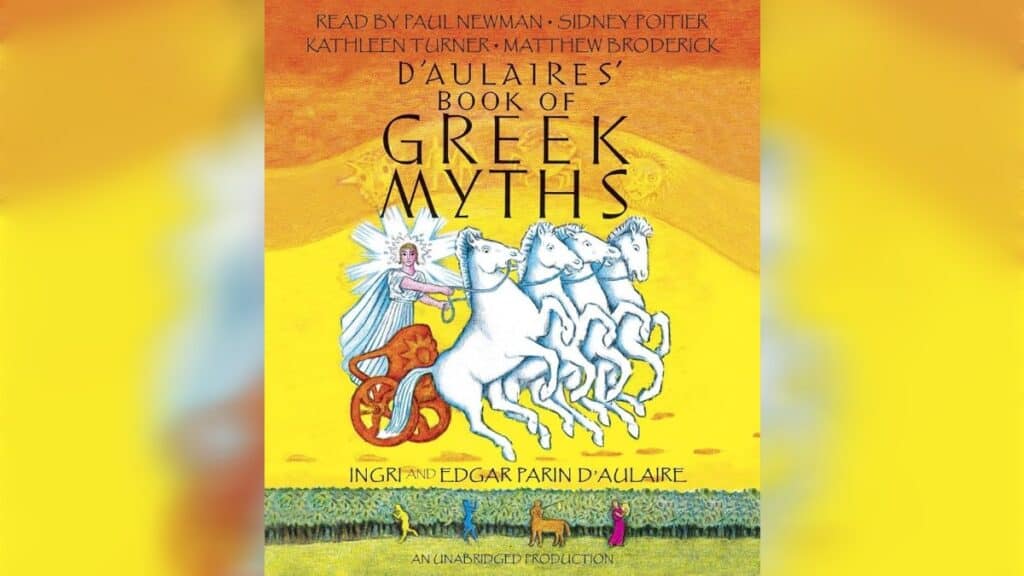
Themes: Morality, adventure, and lessons on human behavior.
Significance: This book introduces Greek mythology in a visually appealing way, making it accessible and enjoyable for families. It has inspired generations to learn more.
Why Read: A great choice for anyone seeking an accessible introduction to Greek myths, especially families and young readers. The D’Aulaires bring these timeless stories to new audiences.
Conclusion: Discover the Power of Greek Mythology
Exploring the best books on Greek mythology and religion offers a unique window into the values, beliefs, and worldview of ancient Greece. From epic tales of heroism and adventure to the complex relationships between gods and mortals, these books allow us to connect with the enduring spirit of ancient myths and the lessons they offer. Whether you’re a student of history, a lover of literature, or simply curious about the origins of these timeless stories, the books mentioned here will deepen your appreciation and understanding of Greek mythology.
Reading myths is about more than enjoyment – it cultivates empathy, moral reflection, and insight into human nature. The myths persevere because their insights ring true across cultures. Modern readers can find guidance on facing life’s obstacles, as well as gain nuanced perspective on fate, destiny, and humanity’s place in the cosmos.
Ready to journey into the world of Greek mythology? Start with one of these books and immerse yourself in tales of gods, heroes, and ancient wisdom. Let us know your favorites and share how Greek mythology has inspired you in your own life’s journey. Exploring these profound stories connects us to each other and to civilizations past – may they spark wonder and enlighten all who open their pages.


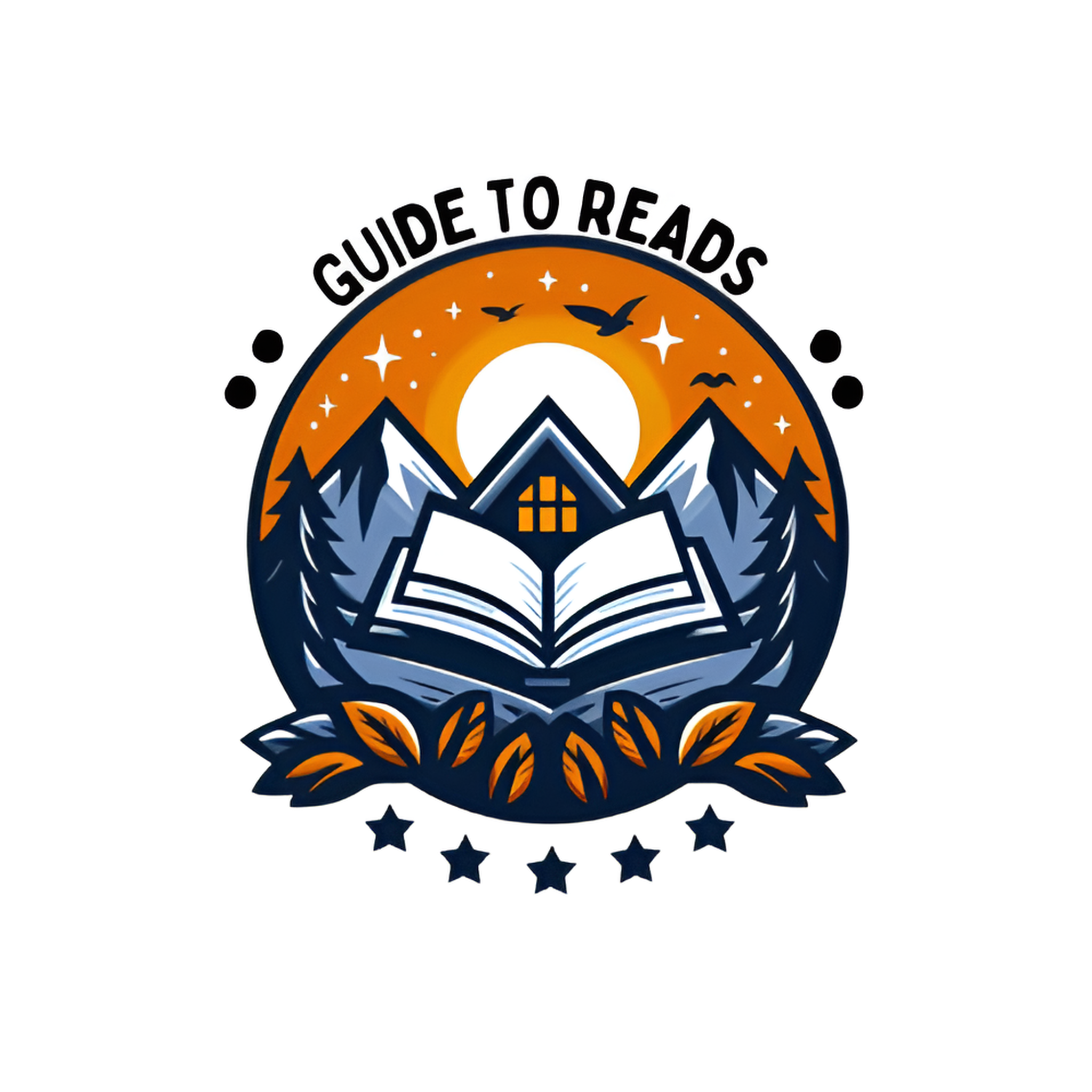





























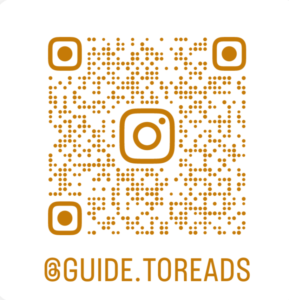
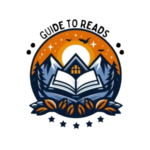


Add comment